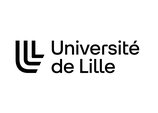Fighting Fake News with discernment and critical thinking! ... in the age of AI
- Duration: 7 hours
- Effort: 75 minutes
- Pace: Self paced
- Languages: English and french
What you will learn
At the end of this course, you will be able to:
- understand and explain the phenomenon of Fake News,
- identify fake news and its mechanisms,
- adopt appropriate methods and choices to develop a critical approach to artificial intelligence.
Description
Today, direct and indirect sources and forms of communication have invaded our lives. As a result, we are most often connected and we want to stay informed. But in the face of this pervasive communication, we are exposed to all kinds of content and we are not necessarily used to checking it out.
The aim of the Boomering MOOC is to help us understand the mechanisms of information and disinformation.
Format
This MOOC is made up of 8 modules that will lead you to acquire knowledge about disinformation phenomena through definitions, typologies and explanations, and to apply this knowledge through exercises and quizzes.
Prerequisites
No prerequesites are required.
Assessment and certification
This course awards Open Badges at the end of the training.
An intermediate assessment is offered in the form of a quiz at the end of each part of the course; a final assessment covers the various points studied in a summary quiz.
The badge will only be awarded if 65% (minimum) of the quizzes are successfully completed.
Course plan
A. Understanding the mechanisms of information disorder
B. Interview with journalist Daniela Cavini
C. Interview with journalist Paolo Attivissimo
An altered way of seeing the world
Errors and false beliefs
A. Errors and false beliefs
B. Cognitive biases
A. Introduction
B. An approach and tools to better understand the mechanisms of false information
C. An educational challenge to combat false information together
D. Critical thinking in the face of artificial intelligence
Bonus :
A set of corollary contents linked to the digital challenges in the profusion of fake news
. Video
. Documents
. Bibliographical references: books, articles and websites
Course team
Sylvie Condette
Categories
Philippe Le Gonnidec
Categories
Organizations
License
License for the course content

Attribution-NonCommercial-NoDerivatives
You are free to:
- Share — copy and redistribute the material in any medium or format
Under the following terms:
- Attribution — You must give appropriate credit, provide a link to the license, and indicate if changes were made. You may do so in any reasonable manner, but not in any way that suggests the licensor endorses you or your use.
- NonCommercial — You may not use the material for commercial purposes.
- NoDerivatives — If you remix, transform, or build upon the material, you may not distribute the modified material.
License for the content created by course participants

All rights reserved
"All rights reserved" is a copyright formality indicating that the copyright holder reserves, or holds for its own use, all the rights provided by copyright law.



